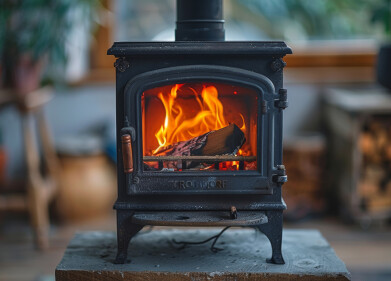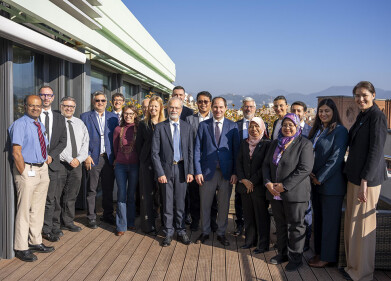Air clean up
Why Does the Delhi Government Want to Spray Water from Helicopters?
Nov 15 2017
Last month, the Delhi government announced plans to spray water over the city centre in a bid to alleviate the air quality crisis that has plagued its residents over recent weeks. However, the idea has been met with criticism and even derision from experts in the industry, who question its effectiveness as a long-term solution and even its feasibility as a stopgap measure.
Knee-jerk reaction?
In the aftermath of Diwali (the Hindu festival of lights), the city of Delhi has once again experienced heightened levels of air pollution. The same thing happened last year, at which point the local government announced the prohibition of firecrackers within the city limits and the implementation of a “three-tier plan” aimed at reducing pollution.
The plan involved the construction of virtual chimneys, water fountains and outdoor air purifiers at crucial traffic junctions around the city, but it was quickly shelved and eventually buried, never making it past the drawing board stage. This year, Delhi’s Environment Minister has come up with another plan – sprinkling water over the city from helicopters and other types of aircraft.
Imran Hussain wrote to the central government asking for permission to implement the plan, claiming it could be funded from Delhi’s Air Ambiance Fund. This money has been raised by levying a charge on all diesel purchases within the city, and to date has amassed a respectable Rs 240 crore.
Problems with implementation
Although the plan might have positive consequences in theory, critics have pinpointed various logistical issues which, they argue, make it unfeasible in practice. For starters, the provenance of the water itself has been questioned by Polash Mukherjee, who serves as a research associate at the Centre for Science and Environment’s Clean Air and Sustainable Mobility Unit.
“Delhi is water starved. Extracting ground water to execute the plan is out of question,” he said, pointing out that while using wastewater might be a viable alternative to converting the substance into an energy source, it’s not without its own logistical pitfalls. “If one decides to use non-potable water, its recycling on such a massive scale would still remain a big challenge.”
Furthermore, Mukherjee pointed out that the use of helicopters to distribute the water might actually exacerbate the problem, since they would necessarily have to fly low in order to sprinkle the water. This in itself could generate dust storms, causing the very thing they intend to alleviate.
Back to basics
Mukherjee called the plan “whimsical” and said it shouldn’t be perceived as a viable solution without first taking care of, in his own words, the basics. These, he insists, concern the infrastructure and environmental regulations surrounding the city, and must be addressed before any tangible results will be seen.
“There should be no loose dust particles on topsoil, no construction dust in the open. Have effective prohibition on burning of solid waste,” he explained. “Even population density, construction activity and the emission of pollutants have to be controlled and managed well before resorting to such unprecedented emergency measures.”
Events
Feb 05 2025 Nantes, France
Feb 16 2025 Kampala, Uganda
Feb 26 2025 Chennai, India
Feb 26 2025 Tulsa, OK, USA
WATERTECH CHINA (GUANGDONG) 2025
Mar 05 2025 Guangdong, China












